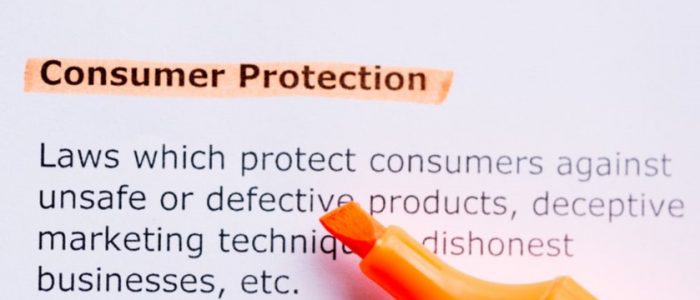The Idaho Consumer Protection Act
The Idaho Consumer Protection Act – Idaho Code Section 48-603
Idaho’s Consumer Protection Act was enacted in 1971 to “protect both consumers and businesses against unfair methods of competition and unfair or deceptive acts and practices in the conduct of trade or commerce” and to set forth procedures to secure this protection.
The statutory provisions of the ICPA protect consumers against the following:
- Passing off goods or services as being from a person or company they’re not from.
- Causing confusion or misunderstanding about the source of goods or services, or about who has approved, certified, or sponsored, or who is associated with, the goods or services.
- Deception about the geographic origin of goods or services.
- Representing that goods or services have ingredients, benefits, uses, or other characteristics they don’t have.
- A person representing that they have approval from or affiliation with someone when they lack it, or representing they have qualifications or a license they don’t have.
- Representing that goods are new when they’re not, or representing that goods or services are of a certain quality when they’re not.
- False advertising.
- Filling in blank spaces on a contract after a consumer has signed it, or not delivering a contract a consumer has signed and requested.
- False statements about the extent of use, mileage, or age of goods.
- Promising to pay a consumer (by cash, rebate, discount, or credit) for names of other possible purchasers, or having a consumer otherwise assist in sales, when the payment to the consumer is dependent on something that happens after the sale.
- Representing that services, repairs, or replacements are needed when they’re not.
- Any other false, deceptive, or misleading act or practice.
- Price gouging.
Further, some acts are considered “unconscionable,” meaning a party knowingly taking advantage of a person unable to protect his or her interests because of a disability or certain other disadvantages; selling at a price the seller knows “grossly exceeds” the price of similar alternatives; inducing a consumer to enter an arrangement the inducer knows to be excessively one-sided in his favor; and certain other acts that would “outrage or offend the public conscience, as determined by the court.”
If you’ve been a victim of one of these practices, you may file a complaint with the Idaho Attorney General’s Consumer Protection Division or file your own lawsuit in small claims, magistrate or district court. You’re entitled to (1) void the agreement, or (2) bring an action to recover your actual damages or $1,000, whichever is greater (depending on the court in which you bring your claim). You may also request the court declare the practice wrongful and enjoin (stop) the practice. In certain circumstances, if you are elderly or disabled, you may seek three-times your damages from the violator, or $15,000, whichever is greater.
For further information, see the Idaho Attorney General’s Consumer Protection Manual at IDAG Consumer Protection Manual. If you believe you may have a claim under the ICPA and are in need of an attorney to represent you, please contact the experienced attorneys at Brian Webb Legal for a consultation.


Comments are closed.